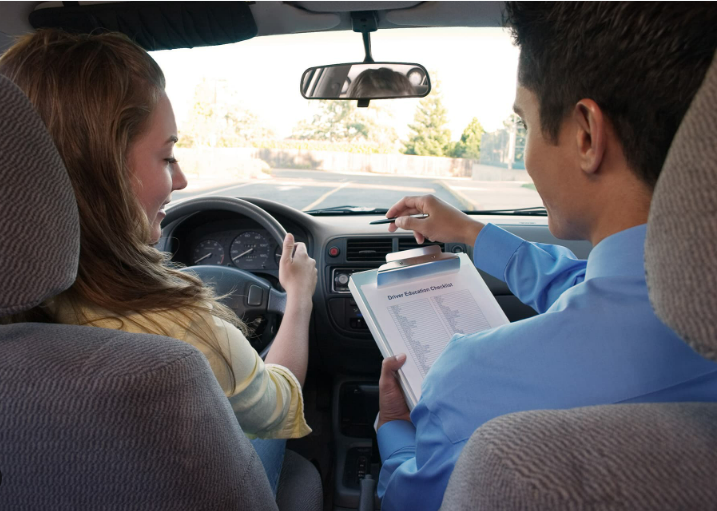What is the Penalties for Driving Without Insurance in Illinois?

Driving uninsured in Illinois is against the law and can lead to fines and a suspended license. If caught driving without insurance, you might face increased car insurance premiums and significant out-of-pocket expenses if you’re involved in an accident. According to Bankrate’s insurance data, drivers in Illinois typically pay less for car insurance compared to the national average. Therefore, ensuring your insurance is paid up is not only legally required but also a prudent financial decision, as you’ll discover in this article.
Minimum insurance required in Illinois
In Illinois, the minimum requirements for vehicle insurance to be road-legal vary. Drivers in The Prairie State must maintain at least the following limits for bodily injury, property damage, and uninsured motorist coverage:
- $25,000 of bodily injury liability coverage per person
- $50,000 of bodily injury liability coverage per accident
- $20,000 of property damage liability coverage
- $25,000 of uninsured motorist bodily injury liability coverage per person
- $50,000 of uninsured motorist bodily injury liability coverage per accident
These limits are often expressed as 25/50/20 for bodily injury and property damage, and 25/50 for uninsured motorist coverage in insurance policy documents. While meeting these minimums is necessary for legal driving and typically the most affordable option, insurance experts often advise opting for higher liability limits if your budget permits. Inflation has affected the cost of vehicles and medical care, so a minimum coverage policy might not provide adequate financial protection in the event of a multi-vehicle accident.
Penalties for driving without insurance in Illinois
According to Illinois state Mandatory Insurance Law 625 ILCS 5/3-707, all vehicles that are registered must maintain the necessary insurance coverage to avoid potential penalties such as:
Registration suspension
In 2020, the Secretary of State implemented an Electronic Liability Insurance Verification program for Illinois-registered vehicles. This system electronically connects all authorized car insurance providers in the state. Semi-annually, it automatically verifies that all registered vehicles maintain the required minimum liability coverage. If an initial verification attempt fails, a second check occurs after 30 days. If the vehicle remains uninsured at that point, its registration will be suspended.
During suspension, the vehicle cannot be operated, though you may drive other insured vehicles. To reinstate registration, you must provide proof of insurance and pay a $100 fine. However, driving without insurance during a traffic stop or after an accident carries more severe consequences, as we will discuss next.
Paying a fine
Driving without insurance in Illinois carries serious penalties. A first offense is classified as a petty offense, with fines ranging from $500 to $1,000. If a driver is convicted of uninsured driving three times or more, the fine can escalate to $1,000. However, if an uninsured driver causes an accident resulting in bodily injuries, it becomes a class A misdemeanor. In such cases, fines can reach up to $2,500, accompanied by additional fees and the possibility of imprisonment.
In situations where a driver can demonstrate they had active insurance coverage when ticketed for driving uninsured, they may avoid paying a fine. Similarly, acquiring insurance before a court appearance may lead to a reduction of the fine to $100 in many instances.
License suspension
If you’re a first-time offender driving without insurance in Illinois, your license can be suspended for up to three months. For repeat offenders or those caught driving during a suspension period, the suspension can extend by an additional six months or more. To reinstate your license in Illinois, the usual fee is $100.
Vehicle impound

Under amended state law 625 ILCS 5/4-203, if you’re caught driving without insurance in Illinois, law enforcement has the authority to tow and impound your vehicle. The costs for storing your vehicle at the impound lot can accumulate rapidly, making it crucial to resolve your insurance situation promptly. Failure to do so could ultimately result in your vehicle being repossessed.
Higher insurance premiums
Getting caught driving without insurance in Illinois typically labels you as a high-risk driver in the eyes of insurance companies. When you shop for insurance in Illinois afterward, you can expect to face higher premiums due to your lapse in coverage. In some cases, insurers may even decline to provide coverage to drivers with a history of coverage lapses.
SR-22 requirement
If you are caught driving without insurance multiple times and receive court supervision, you will eventually need to obtain an SR-22 insurance certificate for a minimum of three years, and possibly longer. An SR-22 is a specialized insurance certificate that verifies to the state each month that you maintain the minimum required insurance coverage mandated by Illinois. Failing to comply with SR-22 requirements can lead to the suspension of your license by the state.
Getting into an accident without insurance
If you’re an Illinois driver involved in an accident without insurance, the consequences can be severe, depending on fault. Illinois follows modified comparative negligence laws to determine fault and damages recovery.
Under these laws, you can only seek damages from the other party if you are less than 50% at fault for the accident. If you are less than 50% at fault, you can file a third-party claim through the more at-fault driver’s insurance to cover any bodily injuries or property damage.
However, if you are found to be at least 50% at fault for the accident, the other driver’s uninsured motorist coverage would typically cover what your insurance would have paid. This process can take several months, and once resolved, the other driver’s insurance company may pursue reimbursement by suing you for the losses incurred.
Getting into an accident with an uninsured driver
Drivers seeking to reduce their financial exposure from potential accidents involving uninsured drivers should consider discussing increased uninsured motorist coverage with their insurance agent. This coverage can assist in covering medical expenses for you and your passengers if you’re involved in an accident with an uninsured driver. While Illinois mandates a minimum uninsured motorist coverage of 25/50, drivers have the option to raise these limits for greater financial protection.
Another beneficial option is medical payments coverage, which helps pay for medical expenses resulting from an accident, regardless of fault. Both uninsured motorist coverage and medical payments coverage provide additional layers of financial security beyond basic liability insurance.
According to the Insurance Information Institute, approximately 16.3% of drivers in Illinois are uninsured. Given this risk assessment, customizing your insurance policy to include these coverage types can be a prudent strategy to safeguard your finances against potential accidents involving uninsured motorists.



